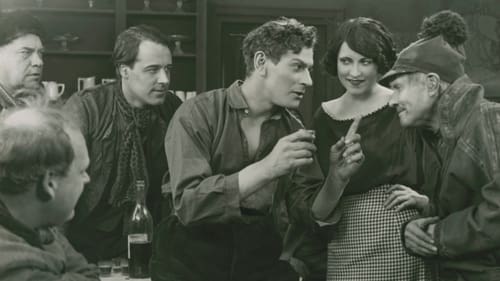Waldemar Wohlström
Birth : 1879-08-08, Helsinki, Finland
Death : 1964-03-15

Finland late 1700s. After Katarina Thorwöst becomes a widow, there are many suitors, but her heart belongs to the fencing teacher lieutenant Carl-Magnus Schildt.

In the early 1800s, Finnish governor's daughter first detests but soon falls in love with Russian Czar Alexander I who has just taken Finland over from Sweden's rule.

Andersson
In mid-19th century Finland, Klaus von Rapp marries young Anette Erling. The marriage is full of happiness until Klaus’s deception is exposed and changes everything with catastrophic consequences.

Carl Johan Granberg
The life story of Aleksis Kivi, author of the first Finnish novel in Finnish language and (posthumously) its most successful writer.

(uncredited)

Screenplay

Director

juhliva lappalainen
A Russian officer rescues the wanted anarchist Vera Maretskaja. A romance arises between them, but the secret police arrests the officer in a restaurant and expels him to Siberia on charges of aiding the revolutionaries.

Jalmari Arpola

Director
Forester Antti Kare and manager John Freyberg travel north in search of millions worth of timber sales. The manager's giddy daughter Margit also secretly joins the journey.

Heikka
In a small mine town north of the circle, Torsten lives, working with his sister Eva and comrade Lars, who is engaged to Eva. The town's bat-owner has a daughter, Märta, who, after trying out the big city life, has returned to the village for a while, and begins to flirt openly with Torsten, but also with Lars. Märta hears of an old gold treasure that will be hidden somewhere in the mountains, trying to seduce both of them and seek both friends to find out the treasure. Neither Lars nor Torsten knows the plans or swarms of others, but Eva notices how Märta attracts Lars away from her.

Silent military propaganda film by Erkki Karu, later followed by the musical revue film Meidän poikamme merellä ("Our Boys at Sea", 1933) and Meidän poikamme ilmassa – me maassa ("Our Boys in the Air – and We on Land", 1934), both of them also directed by Karu. The film comes with a orchestral accompaniment arranged by Raine Ampuja in 2005, based on the original score by Lauri Näre and Emil Kauppi, which in turn was based on traditional Finnish military tunes.

Tarini
The film tells the story of a wandering barrel organ player's daily, tragic life in the back streets of the Finnish cities.

Simpura

A man stays with a fisherman and his adult daughter in coastal Finland, develops feelings for the daughter and begins to uncover a terrible secret haunting the family.

Antti Ahola
The Burglary (1926), a drama film directed by Harry Roeck Hansen, is based on a play by Minna Canth. Niilo (portrayed by actor Joel Rinne), a son of a rich estate owner, is in love with a poor crofter’s adopted daughter Heleena (Kaisa Leppänen). However, on his father’s (Emil Lindh) orders, Niilo instead becomes engaged to Loviisa (Ester Roeck Hansen), a daughter of a wealthy landowner. When Niilo wants to call off the engagement, his proud and rejected bride begins to interfere with the lovers’ relationship with the help of Penttula (Yrjö Somersalmi), who is said to be able to perform miracles.


At the end of the middle ages, Ursula is accused of having poisoned her own husband. She claims she is innocent, but to prove it, she must submit to a ritual: trial by fire, walking on fire along a path leading directly to a crucifix. A film that has been much commended for the visual creativity shown by the director in successive blending in of images involving Ursula, her husband, the Virgin Mary, and Jesus Christ. Much applauded, also: the performance of Jenny Hasselqvist, thus described by French director René Clair: “We shall never forget her flaming eyes, the severity of her spirit, her abrupt and alarmed expressions, like an animal under threat.”











